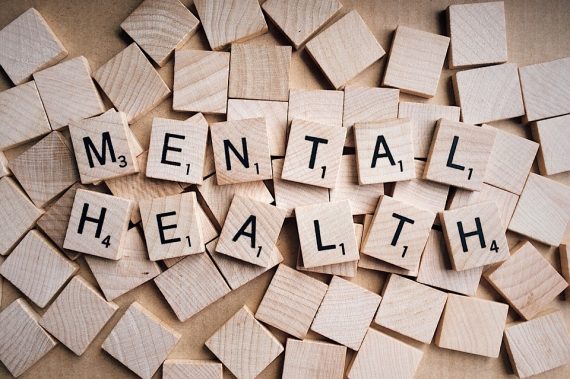Self Promotion: An Interview On Becoming Trauma Informed
A brief primer on trauma and a link to an interview and paper on being trauma informed

Note: As often happens when the topic of trauma comes up, folks in the comments are sharing their personal stories of experiencing trauma. The perverse nature of trauma is that reading stories about the trauma of others can activate traumatic memories that you are carrying. So please do whatever you need to be safe in the comment section. That includes not reading the comment section if that could be harmful to you or don’t feel pressured to share your story because others have shared their stories. And if you are feeling the urge to post something not supportive, this would be a good time to walk away from your keyboard.
From time to time, I have shared a bit about my day job working as a Qualitative Researcher at Code for America (or CfA). CfA is a civic non-profit organization that works across the US with governments to improve the delivery of critical social services. That work puts us in direct contact with people who have been made marginal and, for a wide range of reasons, need government services to help stabilize their lives in order to survive. As a result, we have to be prepared for traumas to emerge in those interactions.
There are a number of definitions for “trauma.” The one I have come to prefer is from the social worker and trauma specialist Resmaa Menakem:
Trauma is a response to anything that’s overwhelming, that happens too much, too fast, too soon, or too long—[it is] coupled with a lack of protection or support. It lives in the body, stored as sensation: pain, or tension—or lack of sensation, like numbness.
Menakem
When an overwhelming experience (or experiences) is unable to be processed, it becomes lodged within the body as trauma. That trauma can manifest itself in a wide variety of ways, including flashbacks, hypersensitivity to stimuli and emotions, poor emotional regulation, and other psychological and somatic responses. Long-term exposure to trauma literally changes the body, altering one’s ability to cognitively process information, manage emotions, and navigate stressful situations. It is also correlated with adverse health outcomes and raised risk for substance use and self-harm. Trauma, whether at an individual or community level, is an integrated experience. There is no mind/body divide possible. Trauma is always something that is at once physiological, psychological, and emotional.
Trauma can be created through a wide range of experiences: from a single event (ex. a car crash or violent attack) to reoccurring events over an extended period (ex. ongoing domestic abuse); it can occur at the community level (ex. the War in Ukraine) and can be passed from generation to generation. And it can be created vicariously, via exposure to the trauma or traumatic experiences of others. It’s important to call out that trauma is deeply personal and cultural. Two people can experience the same event and one might leave traumatized while the other one does not. Once someone starts carrying trauma, it can be reactivated by experiencing something in the present that calls back to that trauma. That process of retraumatization typically only serves to increase and deepen the level of trauma one carries.
I first heard about “trauma informed methods” in the fall of 2019 and that set me on a path to learning as much as I can about the topic and incorporating those methods into my work. On of my mentors on that path is Rachael Dietkus, a social worker who became a designer, and a respected expert on the topic (though Rachael would bristle at that title). I’m excited to share that earlier this year I coauthored a peer-reviewed conference paper on the topic with Rachael (part of the reason I stopped contributing in late summer and early fall). The final version of the paper was published this past December.
This past week, Code for America published a short interview with Rachael and me where we talked about some of the key themes of the paper. If you want to learn a little more about the topic, its a quick read.
And, if this really interests you, you can download the full paper by clicking this link. Rachael and I did our best to avoid academic-ese (there’s a little bit upfront) and I hope you find it accessible. Given the prevalence of trauma in our world (from the ongoing effects of COVID-19, to political and environmental strife occurring here in the US, to wars and other violence happening abroad) learning a little bit more about the topic of trauma and its treatment is unfortunately very timely.
Addendum: One of the reasons that this topic matters so much to me is that it helped me acknowledge, understand, and address the trauma that I was carrying. Initially, I made the common mistake people make when they start adopting trauma informed techniques: seeing it as something you do AT research participants.
I eventually came to see is the necessity to care for the trauma others may carrying and also any trauma you may be carrying as well. In that way collaboration and peer support are at the center of the process. It’s a classic example of the airline safety talk: you need to put on your own mask before helping others. The very end of the paper is my recollection of coming to fully understand that at the worst possible time: in the midst of an interview where I may have accidentally retraumatized my participant.






As often happens when the topic of trauma comes up, folks in the comments are sharing their personal stories of experiencing trauma. The perverse nature of trauma is that reading stories about the trauma of others can activate traumatic memories that you are carrying. So please do whatever you need to be safe in the comment section. That includes not reading the comment section if that could be harmful to you or don’t feel pressured to share your story because others have shared their stories.
And if you are feeling the urge to post something not supportive, this would be a good time to walk away from your keyboard
.
And to all the folks who are sharing so honestly and bravely, thank you. And if at any point you decide you would prefer to have your story taken down, just put a comment in the thread and I’ll remove it (and any references to it). I promise to monitor this throughout the day.
And if after sharing need any support, please reach out to me and I can help get you connected with helpful resources.
I appreciate you all.
As always, you’ve given me a new rabbit hole to spend the day wandering around in. No, seriously, good, thoughtful piece, and you’ve added to my TBR bookmarks. Thanks!
@Flat Earth Luddite:
Thank you, that feedback means more than I can say–especially when it’s in regards to sharing a topic that I hold very dear.
My own response to trauma has changed over the years. When my son was run over by a truck on the Pontchartrain Bridge in an ice storm, I was told by his brother (or misheard) that he went into the ambo unresponsive. I figured he was in all likelihood dead, and I just went numb. It was too much, the pain, the fear, the knowing…. I sat on the couch for hours not thinking or feeling anything, until I got a 2 AM phone call from his wife that he was at the hospital and surgery on his leg was scheduled for the next day. I asked “He’s responsive then?” she replied in a somewhat questioning way, “Yes…”
Compared to a similar situation with his elder brother (4 yo at the time) who ran out into rush hour traffic on a rainy October eve. I still remember his head silhouetted by the head lights of the cars. I thought there was no way I could reach him in time, and I prayed for death to take me too. Even now, almost 40 years later I can not speak or write of it without tears. It left a deep and permanent mark on me.
@OzarkHillbilly:
Thank you for sharing that. That was very brave. My heart goes out to you.
The way you describe the feeling of reliving that moment of chasing your son into traffic is a perfect example of acute trauma and what happens when it reemerges. There’s a saying that comes up a lot in trauma literature that when you have trauma, the past is always present. This is why retraumatization is so challenging.
Additionally, I can only imagine how in the moment when you got that call about your son being run over, part of your reaction was linked to that rainy October eve. That’s a lot to deal with and your reaction to that news is also a really standard reaction.
Again, thank you so much for sharing that.
I was in a relationship with someone who suffered from depression and whose background had everything: abusive genius father, exiled parents, grandfather who committed suicide. There were times for larks when I would google signs of suicide, just as a pressure release. (At the worst, she had always assured me she was not a threat to herself.) And at a certain point her trauma and mental illness became my own, and all of the obsessive doom-laden questions that depression generates became my questions. Why do I have needs when she’s one who is suffering? What kind of selfish monster am I? It was a horrible place to be in, and we were/are both loving and kind individuals.
In a much more manageable example–a couple years ago I was on the scene of a bad accident which was obviously going to be fatal and helped out. For about a week or so, whenever the strangers who were there as well, I wanted to hug them. And I kept replaying what had happened in my head compulsively. But it was pleasurable to do this. It was like what Freud would call the uncanny. Something realer than the reality of the present. But I knew what was happening and that eventually the event would slip back into memory.
@Modulo Myself:
Again, thank you for sharing. That was also really brave and you have my respect for talking about it.
The story of that relationship is such a powerful example of how trauma can be contagious, for lack of a better word. Your partner was dealing with complex trauma (many of the types I mentioned in the article piling on top of each other). And that impacted you in direct and indirect ways. I’ve been through some of that process as well.
Your second story also resonates with me. On a rainy September day, driving back from seeing friends, I stopped to help at an accident site on the NYS thruway. The conditions were so bad on that stretch of road that after I had stopped, another car spun out of control and crashed into the guard rail near where I was standing. While the car missed me, it hit someone else who was there over the guard rail and into oncoming traffic. I scrambled over the guardrail to help him back. I couldn’t bring myself to fully step into the road, but luckily he was moving towards me and if I remember correctly I was able to grab his hand and help him get to safety. His one knee was completely wrecked. I ended up giving his wife my cellphone (this was around 99 or 2000 before everyone had them) so they had a way of contacting people as they were hours away from home.
It was months before I could stop replaying those moments in my head. And I’m still, to this day, not sure if what I remember was correct (writing this now I cannot be entirely sure I fully crossed the guard rail versus leaning as far as I could over it). And those memories were definitely realer than reality.
Ozark your stories made me think about that moment and the aftermath too.
Trauma, under this definition, is widespread, probably ubiquitous, in medical workers. I can picture the faces of every patient I’ve had who died under my care, although the first few are clearer. During residency, when my personal resiliency was worn thin by stress and lack of sleep, I can remember numerous times looking out the window of a hospital room at all the people out there who, to my mind, were blissfully ignorant of the, often, messy, ignominious, and painful reality of being seriously ill. I came to see a divide between medical people and “civilians;” that part of our job was to hold all that knowledge so “normal” people could go about their lives without having all that I was witnessing cast a pall over their activities.
The intensity of this feeling faded as time in the hospital took up a smaller proportion of my daily life, but it’s still there. I’ve been in combat too, and there are strong parallels between the feelings I have about sharing that experience and talking about residency.
Thanks for the links. I’m looking forward to adding this perspective to my skill set.
@Erik:
Thanks also for those thoughts. Lots of stuff to unpack there.
That makes 100% to me. A key foundation of modern trauma theory (and even the recognition of trauma) came from the attempt to understand the way that combat experience impacted veterans, beginning with “shell shock” in WWII. Things really progressed due to the challenges of treating combat vets returning from Korea and Vietnam. All that led to the official addition of PTSD* to the Diagnostic and Statistical Manual in 1980 (the paper briefly touches on that).
From what I can tell, that experience is all too common for most residents. Honestly, after soldiering, it’s hard to think of another professional field that has as much of a commitment to putting it’s members into traumatizing conditions as part of routine training as medicine. What’s worse is, despite study after study showing how much the resident experience leads to mental stress, depression, and often self-medicating behaviors to help with coping, and most residents agreeing that it’s an awful experience (starting with placement), my understanding is there hasn’t been that much forward progress on making it more humane.
I wonder the degree to which this gets back to a sense of “I had to survive it, so you should be able to as well.”
Again, I have read a lot about how this is often a “rite of passage” for young doctors. I’m told there’s a similar thing that can happen during medical school during gross anatomy. To some degree that class can teach students to start seeing bodies rather than whole humans. And deconstructed bodies at that.
Let me know what you think! The prevailing approach to being trauma informed was developed by medical and mental health professionasls along side social workers at the Substance Abuse and Mental Health Administration and later applied to design and research fields. So in many ways, I’m following in the footsteps laid down by the medical field. Though to your post, I really wish they were better at applying the principles to the way they treat the doctors, nurses and other support staff that make up medical institutions (rather than typically focusing almost everything on the patients).
* – As an aside, there’s been a discussion within the mental health community about the degree to which “disorder” should be used as opposed to “condition” or another more neutral term. The rationale for that is what we call PTSD may actually be a standard way that most people react to traumatic events when they do not have the safety or support to process them. However, that’s still an ongoing debate.
I have long struggled with depression, once falling into a black hole of it so deep I am missing almost an entire year and a half of my life. When I finally climbed back out of it the one thing I knew was that I did not dare allow myself to fall back in. I developed some strategies that sometimes worked better than other times but that with using whatever worked at the moment allowed me to keep a more or less even keel.
I had a very good friend, Dean, nicest guy in the world, in love with a smack addict. He couldn’t give her up and every time he’d make a little progress with her, she’d fall back into her addiction even deeper that she was before. And Dean would fall ever deeper into his depression, and I would be there with him, “giving him a shoulder to cry on.”
A day came when I realized I was getting dragged down too, that his depression was infectious and that maybe I wasn’t strong enough for the both of us. The inevitable day came when I walked away for the last time and I knew it was the last time. There was a cloud of guilt hanging over me but I knew it was a matter of survival, I couldn’t hold myself up and him too. Eventually I accepted what I had done and the guilt became bearable.
I never heard from him again, I guess he knew as well as I. I hope he got smart and gave up on her, maybe moved back to Texas, the one place he always talked of with a smile.
@Matt Bernius:
It’s an interesting question how much of that intentional stress is necessary, or even worthwhile, in either case. I suspect the answer relates to how easily the ultimate job stress can be mitigated. Learning to manage stress under more controlled conditions, if the environment you will be operating in is stressful, may (and I emphasize may) be useful. For medicine it likely depends on specialty and practice setting, although it is worth noting that, in as much as all medical fields have potentially catastrophic consequences if you do the job badly, if you care about your patients you will feel some significant stress about doing the job well. As a colleague of mine says, “this isn’t like getting a Starbucks order wrong.” My thoughts on this are also somewhat informed by the idea of transformative experiences (https://www.preposterousuniverse.com/podcast/2020/02/24/85-l-a-paul-on-transformative-experiences-and-our-future-selves/). Is it valuable for medical or military training to be transformative? I don’t know but I suspect that it is.
There is no doubt still some “I had to survive it, so you should be able to as well” attitude, but I do think it is a lot less than it used to be, and that most programs intentionally try to minimize that approach. My experience is limited on that front though so I could easily be wrong. Regardless, there are other high stress professions that continue to do a better job of training people, without damaging them, than medicine does, and we should see what can be learned from them.
With regard to gross anatomy specifically, my experience was perhaps different than many. While the class did tend to foster an ability to compartmentalize what needed to be done to a body away from the otherwise socially expected behaviors toward humans in general and dead bodies in particular, our instructors insisted on and enforced a reverential attitude toward the gift that both the individuals and their families were making for our education (all of our bodies were specific donations to the medical school for this purpose-no unclaimed bodies or such). At the end of the year the students organize a memorial service to honor our donors and their families. We got to hear from the families about the lives that we were privileged to benefit from, and had the opportunity to express our gratitude for that gift. It was a pretty big deal actually.
I’m just getting time to read your paper, and I’ll let you know what I think.
Thank you for this topic, and thank you for your work in the field. It is an area that needs more research and smart people such as yourself.
When I was reading your descriptions of trauma and its effects on the body, it felt very much tied into the sleep process.
In laymans terms, when we sleep we do our filing. We categorize and try to make sense of the things that we experienced while awake, and subsequently improve our responses to similar stimuli when we experience them again.
Trauma seems to embed an experience that defies categorization – filing. It lives there in our brains unable to be processed the way we normally would during sleep, but our body keeps trying to make sense of it and to get it filed away. Of course that creates flashbacks and memories, and a particular dread of nighttime when we know it’s coming back for us in some form or another.
My own experiences have been nothing as serious as the things here or the things your organization deals with regularly, but I have found that after a few decades, my brain has been able to dissect and pick apart the elements of traumatic things that have happened and file away the components. This helps make the larger things a bit smaller.
Thanks again for a thoughtful piece on a difficult topic.
@Erik:
Thanks for your thoughtful replies!
I agree that this should be a necessary part of medical training. I think it’s also an issue of the degree of pressure and how that pressure can be introduced. For example, 24-hour shifts, which thankfully programs are moving away from (though it took us to get to the year of our lord 2018 before that movement picked up speed).
All good points and I should have been clearer that multiple attitudes can be instilled at the same time. I think the practice of having a memorial service to honor the donors is a truly great idea and I’ve read a lot about them (never had the chance to attend one). Likewise, I have read a lot about how good gross anatomy instructors foster a deep sense of respect for the cadavers (my understanding is one of the easiest ways to get kicked out of med school is to screw around in that class).
@Tony W:
This is a pretty good analogy. Processing is considered critical to having an experience not become embedded as trauma. Some people are wired in a way that they have biological advantages to doing that. Others need outside supports.
And there are increasing a growing range of tools–especially around memory reprocessing–that seem like they can make a huge impact in helping people address deep trauma. I suspect that–provided we can fix our drug policies to let this happen–therapeutic use of psychoactive drugs, coupled with other therapeutic techniques, could become a game changer in the next two decades.
@Matt Bernius: Well, I’m an idiot. You said that the first part of the article was academic, so when I downloaded what I thought was your article and it felt like I was back in college reading Foucault, I struggled through. It wasn’t until 12 pages and hours later when the density had not changed to accessible as promised that I checked the author and discovered that the link went to the article by Zolkos instead of yours. Anyway, I found your article an excellent base to create a framework for trauma informed processes. I don’t have anything that I can specifically use this for at the moment, but it will, I think, make it more likely that I will recognize and respond more helpfully to trauma when I accidentally blunder into it in the course of other activities. So thanks for raising awareness of this important issue and presenting an easy to use framework for improving management.
There is a dilemma around shortened work hours for medical trainees. The amount you need to learn is more than ever and the length of training hasn’t (for most specialties) grown longer to accommodate the increase, much less make up for the functional decrease in hours of training “lost” by shortening the work week. There are good arguments to be had that the excised hours were not productive, or were even counterproductive, to learning (and very definitely to health), and at the same time I can tell you that newly graduated specialists are less well prepared to function on their own than they used to be. This is worsened by the inability of experienced physicians to continue mentoring the junior ones because (as noted in the thread on rural coverage) the business lords of health care won’t pay for that redundancy.
When my class was planning our memorial service we were approached by a few people who wanted to observe/study the event. This generated quite a discussion in the class and on the organizing committee (which I was on). Ultimately we said no. We felt that this was a sacred ceremony and did not want anyone to feel constrained because what they said might end up in a paper. We compromised by sharing our planning process and facilitating contact with individual students, but I don’t know that anyone volunteered to be interviewed. In retrospect I wish that I had, but at the time I think it was too fresh to consider trying to explain it.
@Erik:
You’re not an idiot at all. If there is an idiot here, it’s the dumb guy who wrote the post and linked to the wrong article. And woof, that article was total Foucault (or worse, someone writing like the English translation of Foucault). My apologies for subjecting you to that. The link is now fixed.
And thanks for the feedback. This material isn’t revolutionary. What I appreciate is the mapped-out framework, including an organization maturity model, which I hope makes it easier to advocate for.
Also, thanks for the pushback on the residency issue. I think your point about the issue of getting the hours in is really important. Also, something you wrote resonated with some of recent papers I came across:
While doing a bit of quick research on cutting down the length of residency shifts (doing away with the 24 hour norm), I came across this NEJM study that suggests that those cutbacks correlate with more mistakes due to a higher patient load because of reduced shift lenghts. It’s a really eff’d up finding:
https://www.nejm.org/doi/full/10.1056/NEJMoa1900669
Thanks for sharing about the memorial service.
Part of the reason that I’m familiar with these topics is that I was really interested in Medical Anthropology when I was working on my PhD and in particular the training/professionalization process. Since you were curious about some of the social theory stuff, you might enjoy Byron Good’s book “Medicine, rationality, and experience”–it’s an exploration of the medical school and residency experience. Good is a really accessible writer and I appreciated his care in dealing with the topic.
https://www.cambridge.org/core/books/medicine-rationality-and-experience/BB68EAA442BE83BEE13CF606FBDA2AA0
Again, thanks for the great conversation!
@Matt Bernius: I’ve enjoyed this conversation too. You have my email so if you are ever working on something and you think my perspective could be helpful don’t hesitate to use it. Thanks also for the book recommendation. I will definitely check it out.
I really wish the NEJM article listed what they deemed serious errors. I’m really curious about what counted. I suspect that this is a study that won’t replicate.